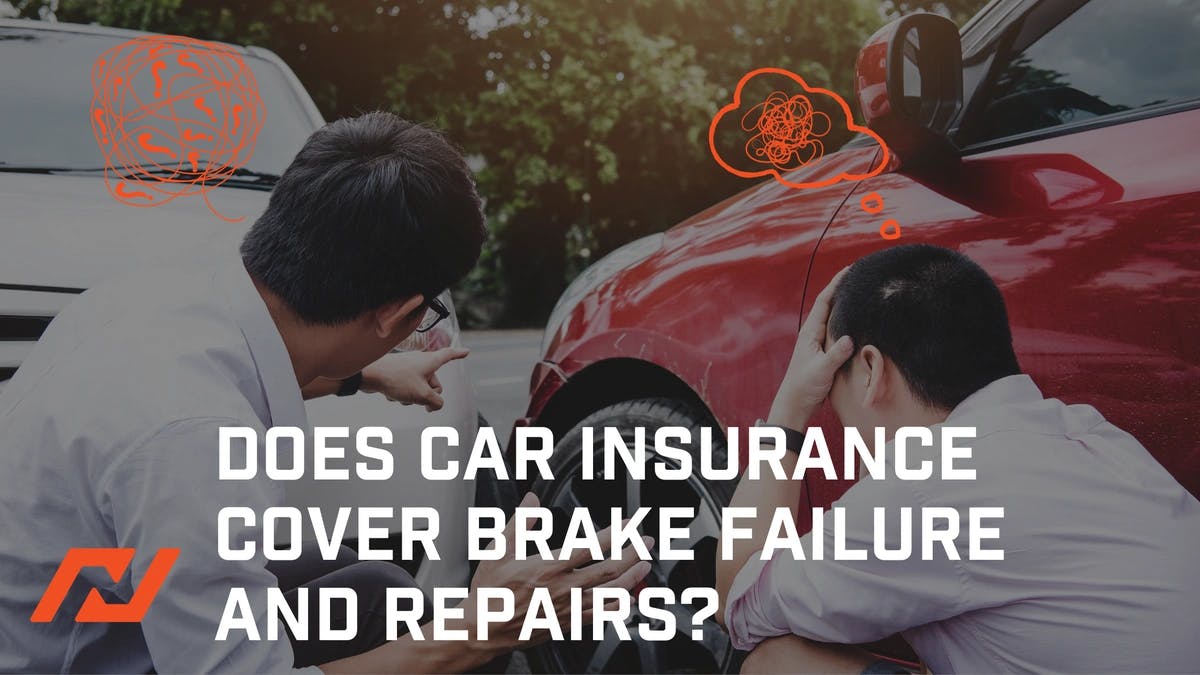Car insurance is a key protective measure that can help cover unexpected expenses arising from situations such as accidents, vandalism, or theft. Yet, the scope of what's included in your car insurance policy can sometimes be unclear, especially when it involves specific parts of your car, such as the braking system.
One common question amongst car owners is, "Does car insurance companies cover brakes?"
Key Takeaways
|
To get to the heart of this matter, it's important to delve into the specifics of different insurance policies and investigate the circumstances in which they might cover costs associated with your car's brakes.
Auto Insurance Basics
Auto insurance companies encompass several different types of coverage, each designed to protect the vehicle owner under varying circumstances. Here's a closer look at these types:
Liability Insurance
This type of insurance is mandatory in most states. It covers the expenses related to injuries or property damage caused by the policyholder in an accident.
This includes medical bills, repair costs for the damaged property, and legal fees if the other party decides to sue. However, it doesn't cover the policyholder's injuries or vehicle damage.
Collision Insurance
Collision coverage helps to repair or replace the policyholder's car if it's damaged in an accident with another vehicle or if it hits an object, like a tree or a fence.
Comprehensive Insurance
Comprehensive coverage pays for damage to the policyholder's car resulting from events that aren't collision-related. This includes theft, vandalism, fire, natural disasters, or animal damage.
Uninsured/Underinsured Motorist Insurance
The car insurance coverage kicks in when you're involved in an accident with a driver who either has no insurance or insufficient insurance to cover your costs. It can help pay for your medical bills, lost wages, and car repairs.
Full Coverage Car Insurance
Full coverage car insurance isn't a specific policy you buy, but a term often used to refer to the combination of several types of coverage that provide a comprehensive level of protection. Typically, full coverage includes liability, collision, and comprehensive insurance.
These standard auto insurance coverage types are mainly designed to protect against sudden and accidental damage rather than routine maintenance or the gradual deterioration of car parts. Thus, costs related to regular brake maintenance are generally the responsibility of the car owner.
Mechanical Breakdown Insurance
Nonetheless, there's an insurance type, often regarded as an extension to standard insurance, which may cover brakes: Mechanical Breakdown Insurance (MBI). MBI is a policy add-on that covers costs for specific repairs that your car might need over time, including certain brake repairs.
However, even this type of coverage usually doesn't cover regular brake maintenance, replacement due to ordinary wear and tear, or damage from lack of proper maintenance. It is always important to read the terms of your policy or speak with your insurer to understand the specifics of what your MBI covers.
Brakes and Collision Insurance
Collision insurance, a common policy type, may cover brake damage but under specific circumstances. If an accident caused by brake failure resulted in damage to your vehicle, collision coverage could help pay for car repairs. However, the insurance might not cover the cost of fixing or replacing the brakes themselves, especially if the brake failure was due to poor maintenance or standard wear.
Brake Failure as Part of a Larger Claim
If the brake damage or failure is part of a larger claim—say, resulting from a covered peril under your comprehensive coverage—then the cost of brake repair might be included in the claim. For instance, if your car was flooded and the water damaged your brakes, comprehensive insurance might cover the brake repair as part of the damage claim.
Again, the specifics depend on the terms and conditions of your policy, so it's essential to review those or discuss them with your insurer.
Brakes and Liability Insurance
In case your brakes fail and cause an accident, leading to damage to another person's property or causing injury to others, your liability insurance will cover the damage cost or medical bills. However, the cost to repair or replace your car's brakes will still fall on you.
Conclusion
In a nutshell, typical auto insurance does not cover brake replacement or repair unless it's related to a covered accident or peril. Maintenance, wear and tear, and parts replacement are generally considered the car owner's responsibility. However, specialized coverages like Mechanical Breakdown Insurance may offer some relief, albeit within their own set limits.
Before settling on an insurance policy, it's crucial to understand its ins and outs. Always ask questions about what is covered and what is not. Discuss your concerns with your insurance provider to ensure that you have the necessary coverage for your specific needs.
Act NOW for Safe Driving!
Contact NuBrakes instantly—call or message—and guarantee your vehicle's safety. Trust our expert brake inspections and repairs for unparalleled performance.
Don't gamble on the road. Choose NuBrakes today!

